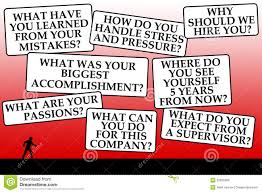 1. Tell me about a time when you built a territory from scratch for a company with little or no name recognition…
1. Tell me about a time when you built a territory from scratch for a company with little or no name recognition…
This will tell you a lot about the sales person’s resourcefulness, behavioral style, and ability to prospect. A strong sales professional can articulate exactly how he did it and has the numbers and timelines to back it up.
Simply put, prospecting is easier when working for a company with high name recognition such as Dell or Microsoft. Often the name alone of a well-branded company is enough to induce a prospect to say yes to a meeting, and the sales professional who has sold only for such companies may not be able to make the leap and hunt effectively for a small- to medium- sized company. The sales person who can build enough rapport, generate interest, and employ multiple prospecting strategies without the benefit of a strong brand has the skill set, scrappiness and tenacity that are found in top sales professionals. These characteristics will transcend a lack of industry experience and will serve him well in almost any sales position.
2. Could you break down the percentages of your sales last year that were from existing accounts vs. new accounts?
Without a doubt, the ability to hunt effectively and consistently is the number one requirement for most companies. It is also an elusive quality, and impressive revenue numbers on a resume are not enough to convince me that the candidate can do the job. Determining whether the numbers that I see on a resume are from existing accounts or new accounts, tells me how this candidate spends most of his time. Account management activities are quite different from hunting activities and big numbers don’t always translate into fierce hunting. When hiring, employers must be clear on whether account management or new account acquisition is the primary job objective and screen accordingly.
3. In your industry, how often is it necessary to negotiate pricing to win a deal?
The wording of the question is critical. When asking this question, referencing the industry standard will likely get a more candid answer. If the question is asked, “How often do you have to negotiate pricing to win a deal?” a sales pro is smart enough to give you the answer you want to hear, instead of one that reflects reality. When the answer is 20% or greater, either the professional regularly has to work with purchasing/procurement departments or simply does not know how to sell value. The latter is of great concern. Top sales professionals know how to create unique value during the sale that differentiates them and their companies from competitors. Less skilled sales people who can’t create unique value are defenseless against money objections and must rely on one thing to close deals – price. Another possibility is that the sales person doesn’t know how to effectively discuss money with the prospect during the sales conversation. When money isn’t discussed until the proposal is presented, the buyer often asks for a discount, and the unskilled sales person caves in.
4. If you were to get this opportunity, what would be your activity plan to ramp up sales in the first 60-90 days?
This question will reveal what prospecting strategies a sales person uses most often as well as how seasoned he is. The prospecting plan should have multiple activities with clear metrics. It isn’t unusual for this question to be followed with a momentary, stunned silence. If the candidate is a brand new college grad, such a response is understandable, and you may be willing to mentor and develop the candidate if your company has a strong on-boarding process.
Otherwise, pass on the candidate. Beyond the silence, candidates will often answer the question with “I would call my existing relationships and attend networking and association events.” This answer also gives me concern. This is not enough activity to predict success.
Excellent sales professionals can tell you in great detail what they’ve done in the past and articulate a decent plan of attack.
5. Tell me about the one that got away…
This provides volumes of information about a candidate. I want the candidate to tell me in rich detail about the opportunity that he worked on diligently, was certain would close, and then didn’t. Good candidates become very animated, usually telling the story with a mixture of humor, bewilderment and pain. They will describe in detail their sales process (which is good information in itself) and you get insights into their story telling ability, sense of humor, competitiveness and resilience. At the conclusion of the story, always ask, “In hindsight, is there anything you could have done differently?” Good candidates will have an answer with one or two possibilities because they have already mentally debriefed it. They will also take responsibility for any failings on their part. Poor candidates will say “There is nothing I could have done differently.” Sometimes they will blame the prospect. This raises red flags about self-responsibility, willingness to admit mistakes, and ability to learn.

